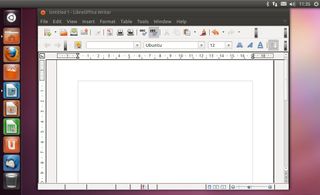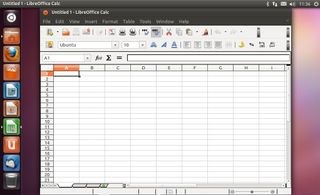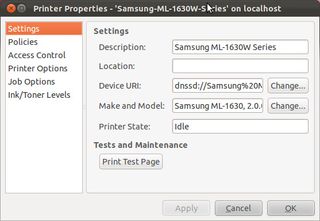Ubuntu vs. Windows 7 on the business desktop
Microsoft Windows may be the de facto standard desktop operating system in business environments, but high costs, restrictive licences and constant security issues are leading an increasing number of companies to consider open source alternatives — as Kat Orphanides explains.
Word Processing & SpreadsheetsWord processing and spreadsheets are disproportionately popular applications for PC users, so it's no surprise that there are numerous, highly polished open source alternatives to Microsoft Word and Excel see our detailed head-to-head review of Microsoft Office vs. Open Office 3.3, for example.
Ubuntu ships with LibreOffice, based on Oracle's OpenOffice.org, and both its Writer and Calc applications will feel familiar to anyone who's used Microsoft Office 2003 although Office 2007 or 2010 users may miss the ribbon interface

Both applications feel faster than their Microsoft rivals when it comes to loading and saving files and templates, and Writer in particularly feels like an improvement on Word, but Calc lacks some of the advanced data handling features of Excel.

Scanner and printer support is excellent. Installing a network-attached network printer simply involved searching the local network using the Printer Configuration utility and selecting the correct device, after which Ubuntu downloaded and installed the appropriate driver.

Ubuntu's scanner handling is similarly straightforward. It uses Linux's SANE driver to provide support for a massive range of both USB and network scanners and MFDs, including many which are no longer supported under recent versions of Windows. Some options provided by OEM scanner drivers may be missing, but more capable image scanning can be had with Hamrick's commercial VueScan 9 software.
Image Editing & DTP
There are some remarkably powerful image-editing applications for Linux, of which GIMP is probably the best known (and available from the Ubuntu Software Centre).
Linux image-editors are generally not as polished as their Windows or Mac OS X equivalents, but GIMP should be mostly familiar to anyone more used to Adobe Photoshop and it's certainly as capable.
Get the ITPro. daily newsletter
Receive our latest news, industry updates, featured resources and more. Sign up today to receive our FREE report on AI cyber crime & security - newly updated for 2024.
As with Windows, connecting a USB storage device that contains images to an Ubuntu PC results in a dialog box that asks how to handle it. Options here include simply showing the device's contents in a window, or browsing the images using the smartly designed photo organisation tool, Shotwell.
K.G. is a journalist, technical writer, developer and software preservationist. Alongside the accumulated experience of over 20 years spent working with Linux and other free/libre/open source software, their areas of special interest include IT security, anti-malware and antivirus, VPNs, identity and password management, SaaS infrastructure and its alternatives.
You can get in touch with K.G. via email at reviews@kgorphanides.com.
Most Popular






